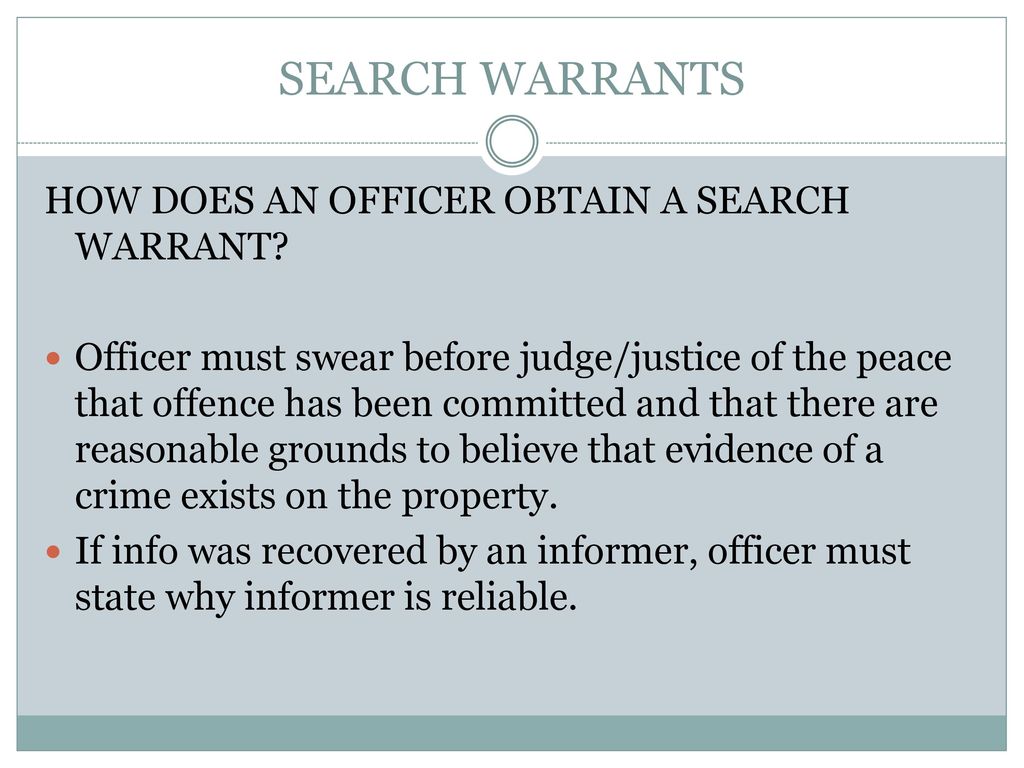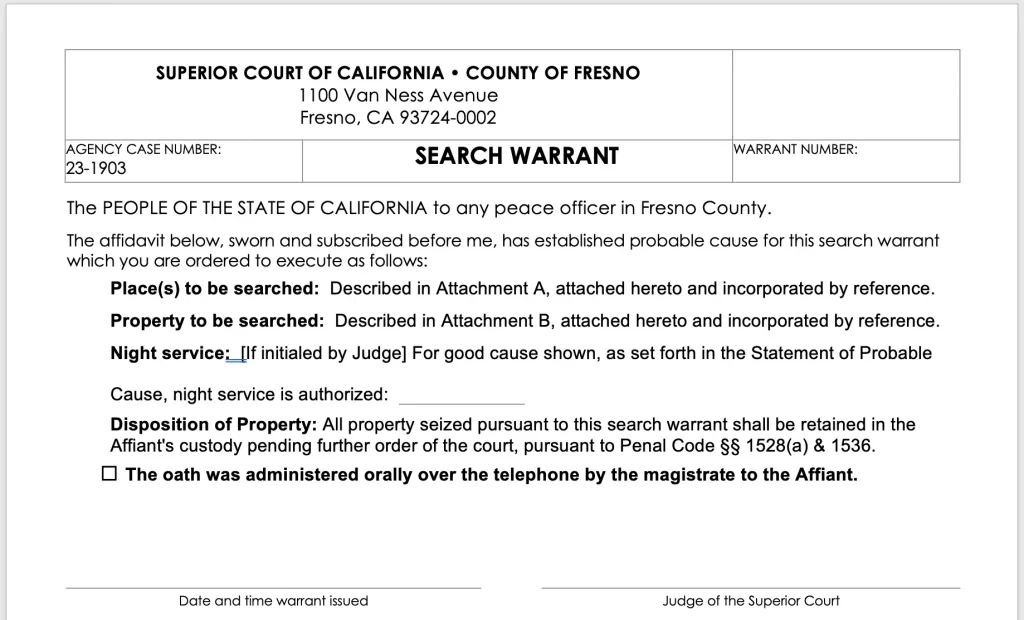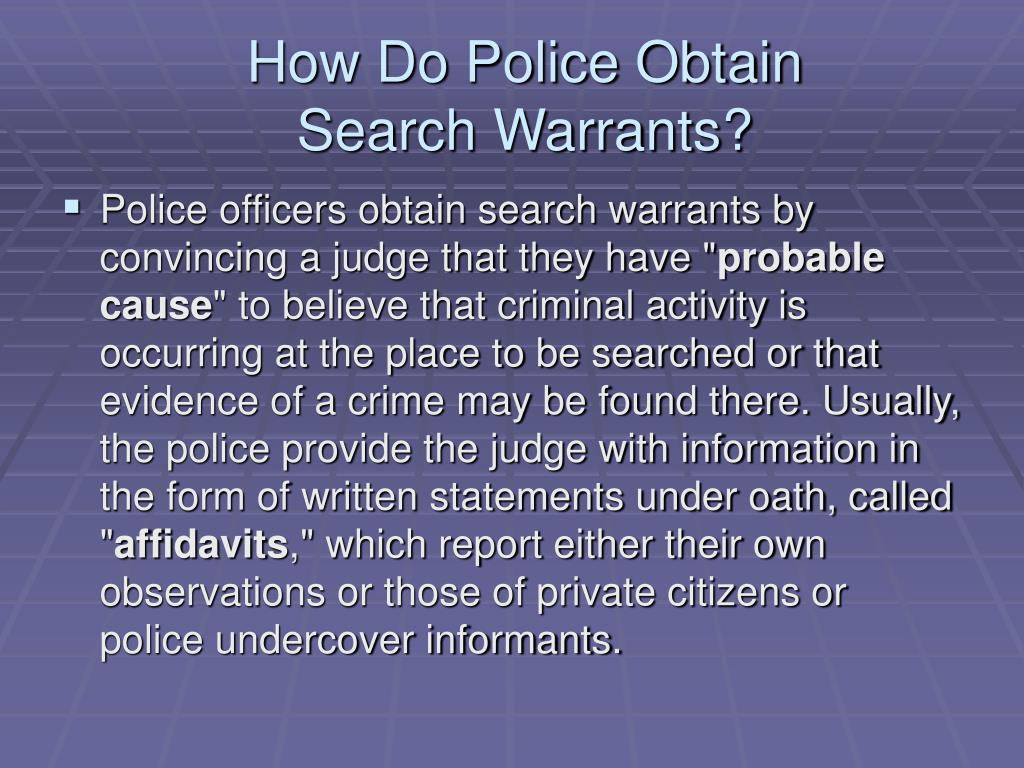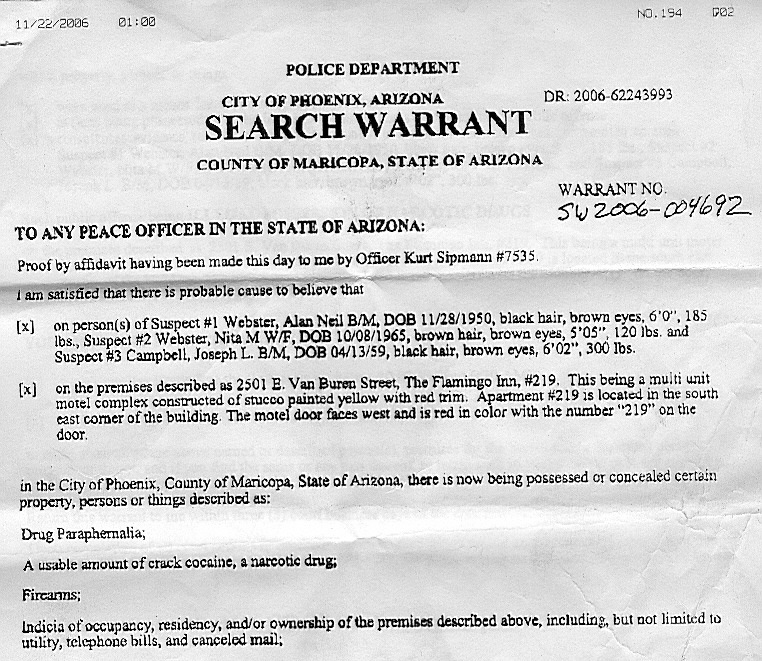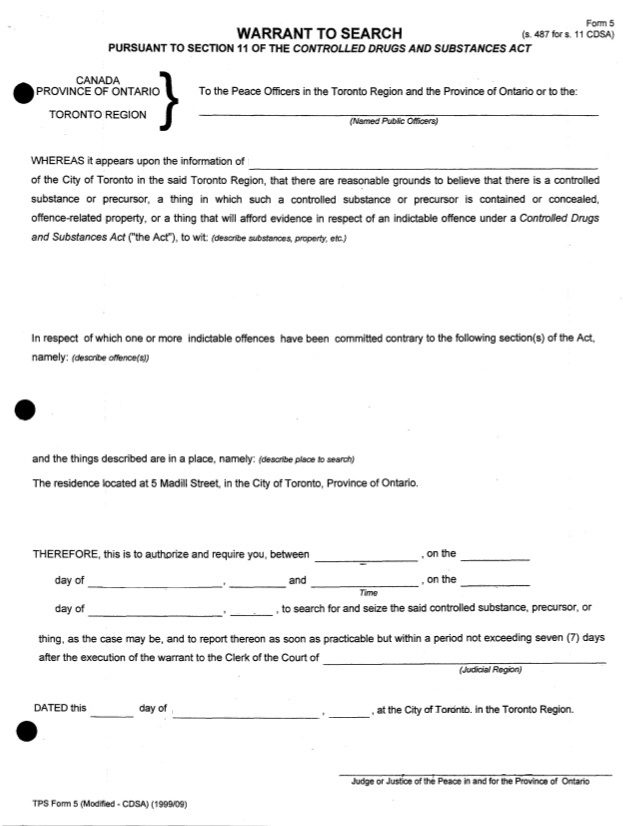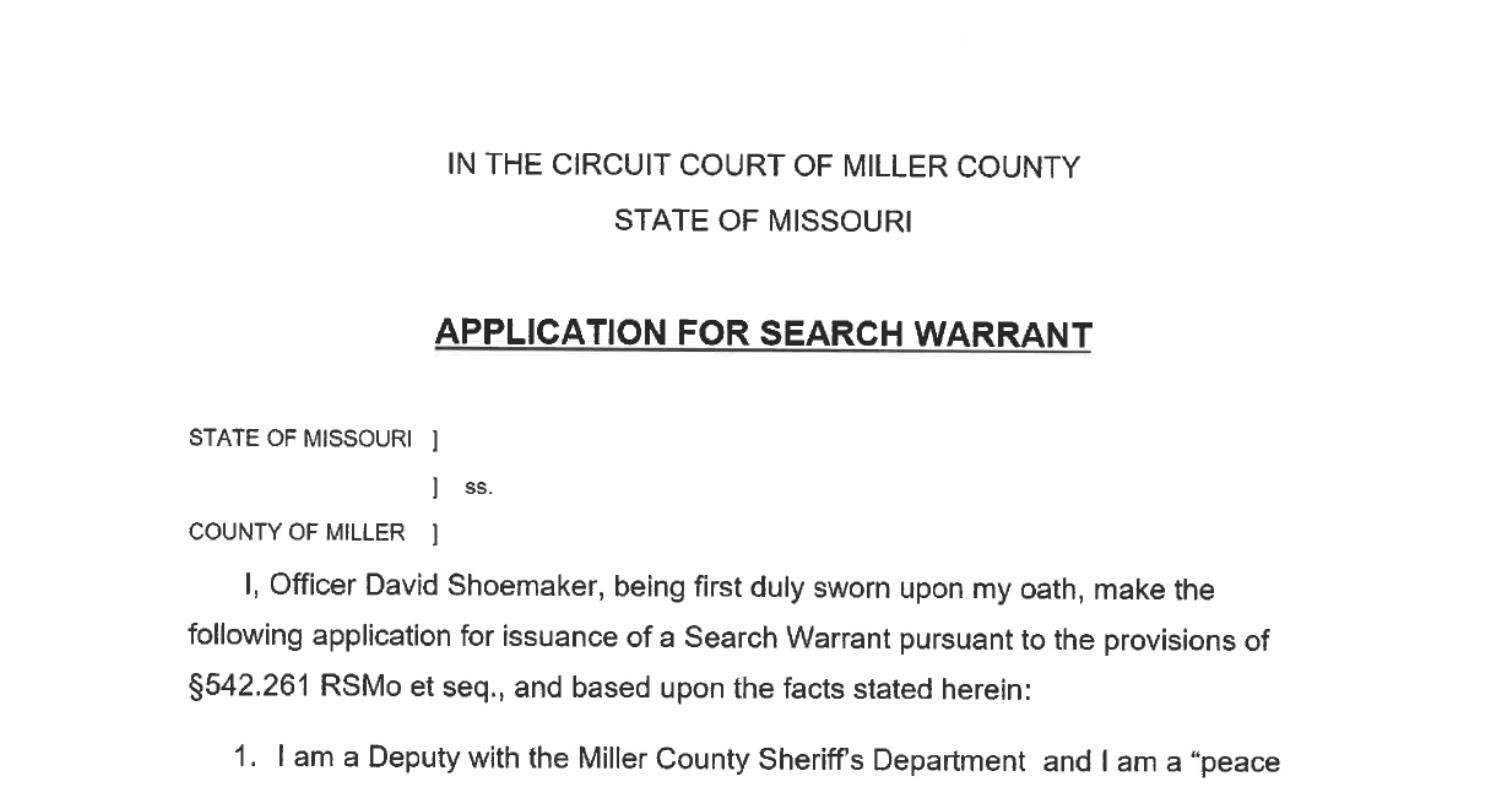How To Obtain A Search Warrant - Learn about the 4th amendment, probable cause, particularity,. Once a law enforcement officer has probable cause, they must request a search warrant from a neutral. A search warrant is a document signed by a judicial officer or magistrate who is “neutral”—generally meaning not associated. The first deals with the traditional search for purposes of obtaining evidence for use in a criminal trial. A search warrant is a court order authorizing a search for criminal evidence. There are two types of searches.
Once a law enforcement officer has probable cause, they must request a search warrant from a neutral. There are two types of searches. Learn about the 4th amendment, probable cause, particularity,. A search warrant is a document signed by a judicial officer or magistrate who is “neutral”—generally meaning not associated. A search warrant is a court order authorizing a search for criminal evidence. The first deals with the traditional search for purposes of obtaining evidence for use in a criminal trial.
There are two types of searches. Learn about the 4th amendment, probable cause, particularity,. The first deals with the traditional search for purposes of obtaining evidence for use in a criminal trial. A search warrant is a court order authorizing a search for criminal evidence. Once a law enforcement officer has probable cause, they must request a search warrant from a neutral. A search warrant is a document signed by a judicial officer or magistrate who is “neutral”—generally meaning not associated.
CRIMINAL PROCEDURES CHAPTERS 7 AND ppt download
Learn about the 4th amendment, probable cause, particularity,. A search warrant is a document signed by a judicial officer or magistrate who is “neutral”—generally meaning not associated. The first deals with the traditional search for purposes of obtaining evidence for use in a criminal trial. A search warrant is a court order authorizing a search for criminal evidence. Once a.
Complete Search Warrant Receipt Search Warrant
Once a law enforcement officer has probable cause, they must request a search warrant from a neutral. A search warrant is a document signed by a judicial officer or magistrate who is “neutral”—generally meaning not associated. There are two types of searches. Learn about the 4th amendment, probable cause, particularity,. A search warrant is a court order authorizing a search.
Understanding Search Warrants About the search warrant document
A search warrant is a court order authorizing a search for criminal evidence. There are two types of searches. A search warrant is a document signed by a judicial officer or magistrate who is “neutral”—generally meaning not associated. The first deals with the traditional search for purposes of obtaining evidence for use in a criminal trial. Learn about the 4th.
PPT Search Warrants PowerPoint Presentation, free download ID5290791
The first deals with the traditional search for purposes of obtaining evidence for use in a criminal trial. A search warrant is a court order authorizing a search for criminal evidence. A search warrant is a document signed by a judicial officer or magistrate who is “neutral”—generally meaning not associated. Once a law enforcement officer has probable cause, they must.
Search warrant Writing an Affidavit. ppt download
Once a law enforcement officer has probable cause, they must request a search warrant from a neutral. There are two types of searches. Learn about the 4th amendment, probable cause, particularity,. A search warrant is a court order authorizing a search for criminal evidence. The first deals with the traditional search for purposes of obtaining evidence for use in a.
Search Warrant LA IMC
Once a law enforcement officer has probable cause, they must request a search warrant from a neutral. Learn about the 4th amendment, probable cause, particularity,. A search warrant is a document signed by a judicial officer or magistrate who is “neutral”—generally meaning not associated. A search warrant is a court order authorizing a search for criminal evidence. There are two.
Search warrant example Fill out & sign online DocHub
The first deals with the traditional search for purposes of obtaining evidence for use in a criminal trial. Once a law enforcement officer has probable cause, they must request a search warrant from a neutral. There are two types of searches. Learn about the 4th amendment, probable cause, particularity,. A search warrant is a document signed by a judicial officer.
Wells Fargo Search Warrant and Affidavit The New York Times
A search warrant is a document signed by a judicial officer or magistrate who is “neutral”—generally meaning not associated. Learn about the 4th amendment, probable cause, particularity,. The first deals with the traditional search for purposes of obtaining evidence for use in a criminal trial. There are two types of searches. A search warrant is a court order authorizing a.
Search Warrants FAQ on Police Raids & Search Warrants Farjoud Law
Learn about the 4th amendment, probable cause, particularity,. The first deals with the traditional search for purposes of obtaining evidence for use in a criminal trial. A search warrant is a court order authorizing a search for criminal evidence. A search warrant is a document signed by a judicial officer or magistrate who is “neutral”—generally meaning not associated. Once a.
Application for Search Warrant.pdf DocDroid
Learn about the 4th amendment, probable cause, particularity,. There are two types of searches. The first deals with the traditional search for purposes of obtaining evidence for use in a criminal trial. A search warrant is a court order authorizing a search for criminal evidence. A search warrant is a document signed by a judicial officer or magistrate who is.
Once A Law Enforcement Officer Has Probable Cause, They Must Request A Search Warrant From A Neutral.
A search warrant is a document signed by a judicial officer or magistrate who is “neutral”—generally meaning not associated. There are two types of searches. The first deals with the traditional search for purposes of obtaining evidence for use in a criminal trial. Learn about the 4th amendment, probable cause, particularity,.
